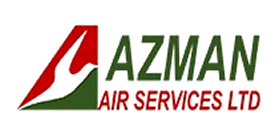 Azman Air Addresses Controversy Surrounding Aircraft Maintenance and Transponder Issues
Azman Air Addresses Controversy Surrounding Aircraft Maintenance and Transponder Issues
Azman Air has provided clarification regarding its aircraft that have recently sparked controversy, with allegations suggesting that they were "smuggled" into Iran. The airline stated that the aircraft in question underwent a routine C-Check maintenance process while in the country.
In addition to addressing the aircraft's maintenance status, Azman Air announced that it will investigate claims regarding its crew allegedly deactivating the aircraft’s transponder while in flight. The airline acknowledged that there was a malfunction with the transponder during the flight to Iran, which was duly recorded in the technical log and reported to the Nigerian Civil Aviation Authority (NCAA).
Muhammad Hadi AbdulManaf, the Accountable Manager of Azman Air, issued a statement on Friday reaffirming that the two aircraft involved—an Airbus A340-600 with the registration number 5N-AAM and a Boeing 737-300 with the registration number 5N-YSM—were undergoing standard checks in the West Asian nation.
The situation surrounding these two aircraft has generated significant public scrutiny, especially following reports from a foreign media outlet claiming that they had been sold to Mahan Air and deregistered without proper notification to the NCAA. It was alleged that this process was carried out without adhering to regulatory procedures and in violation of international sanctions against Iran.
According to the report, the aircraft was reportedly en route from Kano to Kabul when the crew allegedly disabled the Automatic Dependent Surveillance-Broadcast (ADS-B) transponder upon entering Iranian airspace at an altitude of 39,000 feet, although it ultimately landed at Tehran’s Mehrabad International Airport. In response to the allegations, AbdulManaf expressed his disbelief, stating, “Our aircraft went on a routine maintenance C-Check, which is due every 18 months. I am truly shocked by the insinuation that we smuggled our aircraft to Iran. Is it a cow that can be smuggled? This narrative is completely unfounded and lacks any factual basis.”
He further explained that the NCAA has established clear guidelines for the sale and deregistration of aircraft under their Air Operator Certificate (AOC). “Unless these procedures are followed, the aircraft remains under our control. The NCAA has not received any documentation or correspondence from Azman regarding this matter,” he emphasized. Regarding the alleged transponder deactivation by the cockpit crew, he noted that the airline was not aware of such an action but committed to conducting a thorough investigation into the incident. He confirmed, “The transponder did develop a fault while en route to the destination airport, which was logged and documented in the technical log submitted to the NCAA.” AbdulManaf also highlighted that Azman Air is not aware of any sanctions imposed between Nigeria and Iran. He pointed out that there are economic treaty documents signed among D8 countries—Nigeria, Iran, Turkey, Egypt, Indonesia, Malaysia, Pakistan, and Bangladesh—that facilitate economic cooperation and allow for free trade in aviation services and products among these nations. In summary, Azman Air has taken steps to clarify the situation surrounding its aircraft and is committed to transparency as it investigates the claims regarding the transponder issue. The airline maintains that it adheres to all regulatory requirements and is focused on ensuring compliance with international aviation norms.
